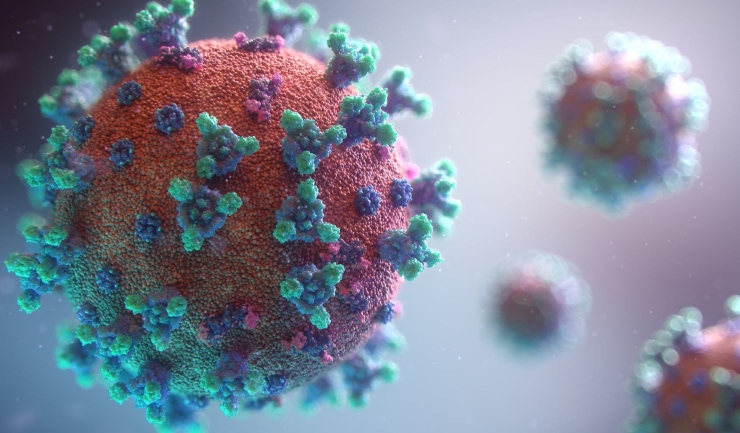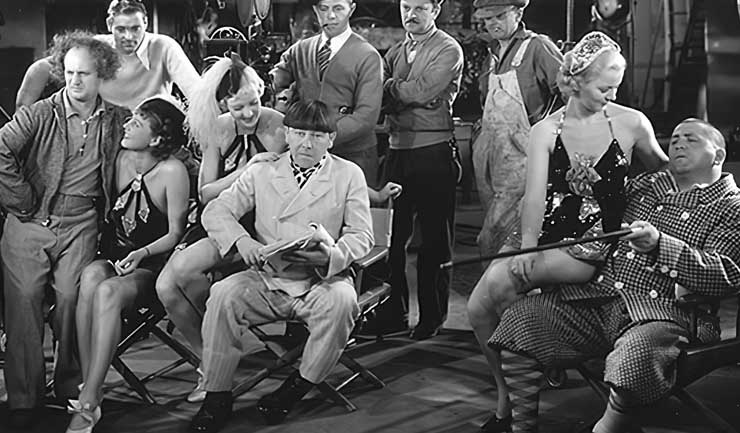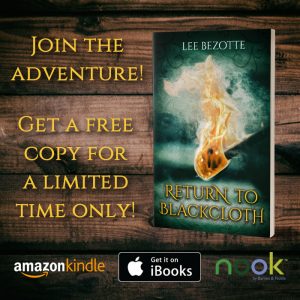
life
So, it’s been almost two years since a global pandemic was declared. I see myself typing that, but I can hardly believe it’s been that long.
To say that it’s been a hard two years would be a major understatement. It’s been challenging, painful, severe (and other words I found in the thesaurus).
Personally, I got the dang coronavirus twice. Yuck. The first time seemed to take forever to get over. My whole family got it. The aches and pains, the fatigue, the loss of taste and smell. It sucked.
Then, seven months later, I got it again. Not nearly as bad, of course, but it set me back a few days.
My aunt wasn’t as lucky as I was. She got it, went to the hospital, and never came home. My cousin followed her to eternity shortly after. Then, my lifelong friend Jason passed away from it just a few weeks later.
Losing someone you love is like having a piece of your heart torn out and, no matter how hard you try to repair it, that piece is still missing, and it just hurts like hell.
But, this pandemic will pass. In fact, the numbers, in the state I live in, are dropping rapidly, and our mask and vaccine mandates are expiring at the end of the month.
However, I’ve seen something emerge from this pandemic that I’m afraid will linger long after the virus is no longer a serious threat. And, in my opinion, will cause lasting damage that is more severe and dramatic than the losses I’ve already faced.
It’s the toxic cocktail of fear and judgment. I’ve never seen more of either in my entire life.
We fear what we don’t understand. We judge what we don’t understand. We judge what we fear. I’ve seen people act out of fear and judgement in ways that have destroyed health, close churches, done psychological harm, and even split families.
Let me give you an example. Someone fears that their rights are being taken away, so they post a meme on social media that makes a judgement about the president. It alienates half their friends, and then they wonder why those people don’t want to get together anymore.
Or, someone judges those who decline the vaccine, calling them unloving or science deniers. So, their friends who opted out because they have natural immunity, or whose doctors have advised them to wait, feel judged and misunderstood, and the divide becomes greater.
I’ve heard people call mask-wearers idiots (more judgement). I’ve seen people refuse to allow family members in their home because they’re not vaccinated (fear).
For churches, it’s been “Damned if you do. Damned if you don’t.” When churches decided to require masks and social distancing, they lost members who didn’t want to mask up. When churches decided to let people decide for themselves about masks and social distancing, they lost members who didn’t feel the church was doing enough to keep those virus-laden droplets in check. In a place that is supposed to be free of fear and judgement, the toxic duo ran rampant, and those who needed the church suffered because fearful, judgmental people took their volunteer time, their financial support, and their gifts and talents elsewhere. Everyone lost because of fear and judgement.
Most of us live with a strange confidence that our bias is right, and conflicting biases are wrong. It’s tragic, really. When we encounter someone with a different bias, we fear and/or judge them.
Maybe it’s the Dunning-Kruger effect. It’s a cognitive bias in which people believe that they’re smarter than they really are. People read a few news headlines and watch a few YouTube videos, and suddenly they’re medical experts who think everyone should respond to the pandemic they way they believe is best, or they’re wrong.
It’s strange. I knew a congressman. He died a couple of years ago. I used to love to chat about politics with him. You know what? He never spoke with the kind of over-confident, judgmental tone that most non-politicians I know speak with. I also know many pastors (and have been one myself for 25 years). None of the pastors I know speak with the authority and high-mindedness that critics of the church do. Even the medical professionals I know do not speak about the pandemic with the kind of confidence and passion that people who have read a few news articles do.
I think, when we’re operating out of fear and judgement, we forget something important. We forget that we don’t know everything. We forget that we’re wrong. In fact, we get so much in life wrong that it’s astounding. An old friend used to tell me, “When we get to heaven, we’re going to find out we were all wrong.” I wish we didn’t have to wait until we got to heaven to discover that.
What’s my point? most people don’t know jack. The experts I know acknowledge that they don’t know everything. What makes you (or me) think that you can take a complex, global issue, with infinite nuances and facets, and judge someone for not responding the way you would? Maybe it’s that Dunning-Kruger effect.
Whatever the reason, if we are going to keep this toxic mix of fear and judgement from wreaking destruction for many more years to come, we have to do a couple of things.
First, we need to acknowledge that we’re wrong. That’s what wise, humble people do. They admit they don’t know everything. They’re humble enough to change their stance if new evidence presents itself. At the very least, they can say, “I might be wrong here.” And that possibility makes it easier to respect those with a different perspective than you. Come on. Say it with me, “I might be wrong.”
Second, we need to develop better personal observation skills. I know this is next level, but you can do it. Recognize when you’re responding in fear. Catch yourself when you’re being judgmental, and call yourself out on it. Some people like to hear themselves speak, but they seldom really like to listen to themselves. Are you using judgmental language? Are you accusing others of being unloving, being an idiot, being uncaring, egotistical, arrogant, dishonest? Do you catch yourself believing that you can do it better than the person you’re criticizing? Try to catch yourself using fearful or judgmental language so that you can make a mental course correction.
This stuff is important! We, and future generations, need us to shed off fear and judgement.
And, for the love of all that is holy, stop cutting people out of your life over pandemic-related stuff. You’re doing more damage than a virus ever could.
But, I could be wrong. 🙂
Love
Hey friends!
What a crazy week we had!
My family and I decided to start off our vacation by visiting family back in Kenosha, Wisconsin. That’s right, THE Kenosha, Wisconsin.
We arrived a day after riots, fires, and looting had started.

Places that I had walked past my whole life were now piles of smoldering rubble. An old friend’s business, was burned to the ground. Our first night there, three people were shot, and two of them died.
It was far from the “best place to raise your kids” town that I grew up in. It had become a frightening place where people from outside the community had come to create chaos and destruction.
I was heartbroken and anxious. But, most of all, I was angry. Furious. I wanted to hurt back. A friend said that he knew where all of these out-of-town rioters had parked their cars, and suggested that we pay them back by vandalizing their vehicles.
I have to admit, I was tempted. I wasn’t going to let the fact that I’m middle-aged, and not particularly fast, stop me.
But then my wife (and voice of reason) chimed in, “Is that what Jesus would do?”
I hate it when she asks that.
Needless to say, I didn’t slash any tires or graffiti and windshields. I just seethed and wrung my hands.
Then, some local church leaders announced that they would be gathering in the park where the protests began each night, and that they were going to pray and worship the Lord for two hours.
Unfortunately, we had to head out of town a couple of hours before their meeting began, but I heard the reports, and they were amazing.
Nothing short of supernatural.
Around a thousand believers showed up to cry out to God for their city. People were set free, they gave their lives to Jesus, and were baptized. There was reconciliation. It was miraculous.

You know what else? The protests that night (and every night since) were peaceful. No more burning. No more looting. Just marching and declaring their petition.
I guess love really does win. Fighting fire with fire really is futile. When Jesus wanted to flex his muscles, he washed feet and sacrificed his life.
If only we could learn to ignore the impulse to take an eye for an eye, and turn that energy toward prayer and loving service. We might just see more miracles!
Wherever you stand on the issues we face today, I hope it’s motivated by Christ-like love.
Well, hopefully, the rest of my vacation will be more relaxing!

Media
“Packers are way better than Vikings!” I said to the other boys in the huddle. It was a cold November morning, and we were waiting for the bell to ring to go inside. I was a junior higher who spent most of his time playing outside, reading comics, or watching reruns of The Honeymooners.
I couldn’t name a single player on the Packers, much less stay awake through one of their games.
But, living in Wisconsin, I’d heard how the Packers were a superior team to the Vikings, Bears, and anyone else in the NFL. My friends said it, my cousins said it, and the guy on TV said it, so it MUST be true. No need to actually watch a game, right? Just follow the script.
The last time I blogged (unfortunately, a whole year ago) I talked about how the news media is not our friend.
Since that article, events have happened that have given the news media enough fuel to go from highly influential to controlling and crippling. Not only are they not your friend, they’re far worse than I originally thought.
Never in my life have I seen the news completely dominate the lives of so many people. Everywhere, there is a paragraph that gets published, repeated, televised, shared, and broadcast every single day. In the state where I live, it looks like this:
“Illinois health officials Thursday reported 894 new known cases and 41 additional fatalities, bringing the total number of known cases to 139,434 and the death toll to 6,810.”
Every day, like the beat of a slave ship drum, the “death toll” numbers drive the life and joy out people while they put their dreams and hopes on hold, unable to see a future where they’re living for something greater than surviving the next few months.
My point is this: there are those who want desperately to write the script of your life. They want to dictate your thoughts, your beliefs, your dreams, and your activities. They want your money, your allegiance, and your soul. That’s not an exaggeration. They are the barking “reporters” who tell you who’s good and who’s evil. They are the ones who declare right and wrong. No discussion, no debate.
What they present is fiction dressed as information. Or information spun so badly, it vaguely resembles the truth.
All my life, I’ve wanted to write a non-fiction book (and still might). Why did I choose to write fantasy novels instead? Because a story stirs emotion and moves the heart. People are inspired more through story than through cold facts.
It’s why our news headlines use massive amount of hyperbole. They want to hook your heart and bypass your critical thinking. Then they want you to share it!
They want you to follow their script.
I think it’s time to tear up the script and write our own with the guidance of God’s Spirit. It’s time to return to a sound mind. It’s time to turn off the noise so that we can hear the Lord’s still, small voice. Time to fill our hearts and minds with love, joy, and purpose.
To assist me with this, I’m taking a 12 month break from my personal Facebook feed. I’m also taking a 12 month break from the news. If it’s really important, I’ll hear about it. I’m giddy about getting their voices out of my ears!
You don’t have to like the Packers just because the people around you say they’re the best. You don’t have to follow their script.
I want to wrap this up with a quote from a book written over 80 years ago. Pay close attention to what it’s saying. Especially the last paragraph. (Italics and bold added by me.)
“A reputable physician estimated that 75% of all people who visit physicians for professional service are suffering with hypochondria (imaginary illness). It has been shown most convincingly that the fear of disease, even where there is not the slightest cause for fear, often produces the physical symptoms of the disease feared.
Powerful and mighty is the human mind! It builds or it destroys.
Playing upon this common weakness of fear of ill health, dispensers of patent medicines have reaped fortunes. This form of imposition upon credulous humanity became so prevalent some twenty years ago that Colliers’ Weekly Magazine conducted a bitter campaign against some of the worst offenders in the patent medicine business.
During the “flu” epidemic which broke out during the world war, the mayor of New York City took drastic steps to check the damage which people were doing themselves through their inherent fear of ill health. He called in the newspaper men and said to them, “Gentlemen, I feel it necessary to ask you not to publish any scare headlines concerning the ‘flu’ epidemic. Unless you cooperate with me, we will have a situation which we cannot control.” The newspapers quit publishing stories about the “flu,” and within one month the epidemic had been successfully checked.”
Napoleon Hill, 1938

Uncategorized
When I was young, I would spend my summers with my grandfather on his farm. Every night, we had a ritual of watching the ten o’clock news (followed by Quincy with Jack Klugman).
As I got older, I learned to appreciate the news. It was delivered by well-dressed men and women with spot-on hair, concerned expressions, and a cadence in their voices that carried authority and understanding. When commercials for the news came on, they would say things like:
A difference you can see
A friend you can turn to
Coverage you can count on
Stories that count from people who care
Then I went to work in media and discovered it was all total bull$#!+.
The news doesn’t make a positive difference, news outlets are not your friend, you can NOT count on objective reporting, and they do not care about you any more than McDonald’s cares about the last dope they sold a box of mystery meat nuggets to.
There is one fact about news that everyone knows but chooses to forget. It’s glaringly obvious but we push it aside because we want to believe that reporters have our best interest at heart.
News reporting is a business and its number one priority is to make money.
Shocker.
The news is not a charity. Not even NPR. It is not a benevolent institution existing to dispense truth to an otherwise ignorant people, blessing the masses with information they need to know to survive, take action, or otherwise be generally more interesting.
At best, it’s entertainment. At worst, it’s misinformation designed to create a narrative to sway readers, listeners, and viewers toward the station owner’s bias, even if it means turning family and friends against each other.
In the business of broadcasting, eyeballs equals money. There’s no better way to do that than to create drama, divide people, and get some hashtags trending. It’s about stirring up emotion, even if it means creating panic and anxiety in people who are helpless to do anything about the trauma playing out in front of them.
Good news travels fast but bad news travels faster.
Have you heard about the car that is being developed to run off of solar power? Did you know that the billionaire co-founder of Home Depot is giving away 80% of his wealth to charity? How about that there is a greater percentage of people in our country going to church than in a very long time?
Of course you haven’t heard about these things! That kind of news doesn’t get clicks. You’re not going to get the comments, likes, and shares on your Facebook post by talking about these things.
Remember when the Notre Dame Cathedral caught fire? Why haven’t we heard about restoration efforts? What about ISIS? Is that still a thing? North Korea was testing short-range missiles. Is the threat over?
Apparently, nobody cares. Those issues aren’t “hot” anymore. They weren’t generating enough ad revenue so they’re no longer important.
Currently, the news is ablaze with stories about the conditions at the U.S. and Mexico border. This is an issue that is over 10 years old. It’s terrible and there are thousands of people that need help but why is it so popular now?? Why, all of a sudden, are we being force-fed endless articles, videos, and radio pieces on this topic?
Hint: it stirs drama and provokes feelings outrage. It pits people against each other. It generates ad revenue. And as soon as the story has served its purposes for those who share it, it will disappear behind the next hot-button issue that can be spun to grow the business.
Just in case, let me be clear. I am not singling out any particular media bend. I see this in liberal media, conservative media, christian media, public media, and all media that benefits from more readers, viewers, or listeners (which is pretty much all of them).
So, what’s the takeaway? Before you get all lathered up about an issue or topic, before you share, comment, or lose your peace, remember that doing so is exactly what news producers want you to do. You are advertising for them!
Like soap opera producers, they want to keep you addicted to their programming (there’s a reason why it’s called “programming” by the way). They’ve got your attention and they will do whatever it takes to keep it. Their first priority is to make money. They are a business, and not a benevolent distributor of objective information.
I’m not suggesting ignorance but let that fact filter every headline you read and every story you hear.
The news is Bull$#!+.

Uncategorized
Stan Lee died today.
It’s strange feeling a sense of loss over someone you’ve never met personally but I can’t think of a time in my life that I didn’t know about him. As an avid Marvel Comics reader throughout my childhood, teen, and young adult years, I remember seeing his name on the first page of every issue, “Stan Lee Presents”.
Over the years, I read interviews with Stan, checked out articles, and enjoyed “Stan’s Soapbox” printed toward the back half of earlier comics. I’d known about him for so long that, when he appeared in cameos in the Marvel films, it felt like I was seeing someone I knew up on the screen.
To honor his memory, I thought I would share a few things I’d learned from the work of the man who created icons like Spider-Man and The Fantastic Four. It’s a small list but it’s filled with things that have had a big impact on me and others.
There’s no such thing as too crazy of an idea. When you consider the massive, ridiculous ideas printed in Marvel Comics, you have to admit that they’re insane. People that can burst into flames without burning up, realms of incredible unreality, and worlds in peril day after day. I wonder if anyone ever thought that an idea was too far-fetched! He taught that no idea was too crazy and that the only limitation to telling a story was our imagination.
Good wins. Sure it might take a few months. The hero might face some setbacks. But in the end, good triumphs over evil. I always knew that The Hulk would overcome The Leader. Spider-Man would defeat Doctor Octopus, and The X-Men would beat Magneto. The old saying, “right is might” is true in comic books and I believe it’s right in real life.
Heroes are born from tragedy. Stan wrote about characters who became heroes when they went through tragedy. Peter Parker lost his Uncle Ben and vowed to fight crime instead of waste his talents entertaining people. Steve Rogers was puny and bullied and enlisted to serve his country. And Tony Stark became Iron Man when he became a prisoner to terrorists. Tragedy can shape us all into heroes if we’ll let it and Stan Lee captured that beautifully.
There is greatness in the unlikeliest of people. One of my favorite things about Stan’s characters is that they’re far from perfect. Bruce Banner is a spineless nerd. Donald Blake is borderline crippled, and most of the X-Men are social rejects. You don’t have to be pretty and perfect to be great. You just have to be willing to step up.
You’re never too old to imagine and have fun. Lastly, Stan Lee demonstrated that growing old doesn’t have to mean growing up to be a curmudgeon. At any age, you can still make up amazing stories, create unbelievable characters, smile, and have fun. Even in his 90’s, he was still dreaming, still laughing, and still having a blast. I hope that I’m still carrying on the way he was when I’m late into my life.
Thank you, Stan, for the gifts of creativity, imagination, and wonder that you brought into the world. You will be missed!









